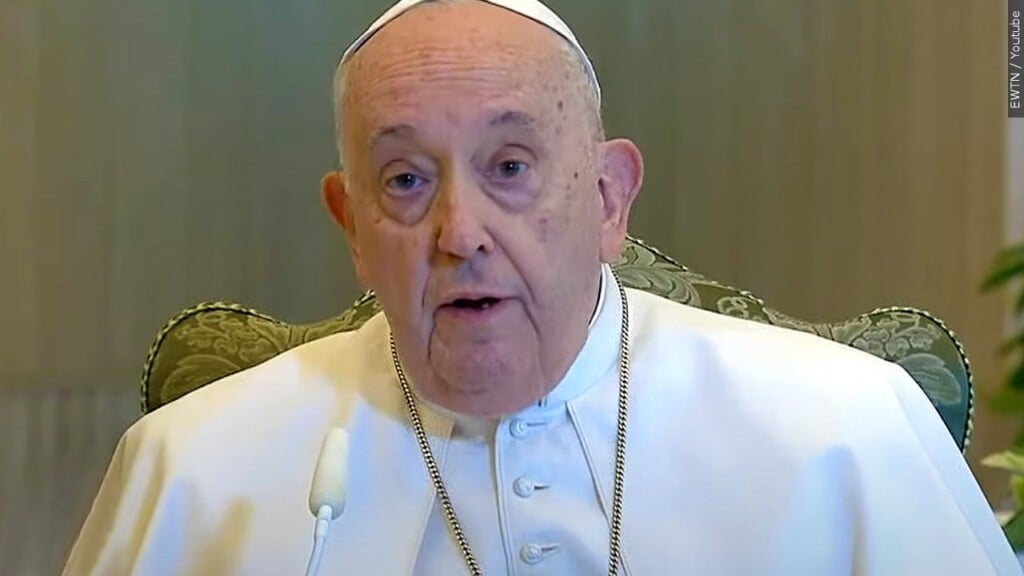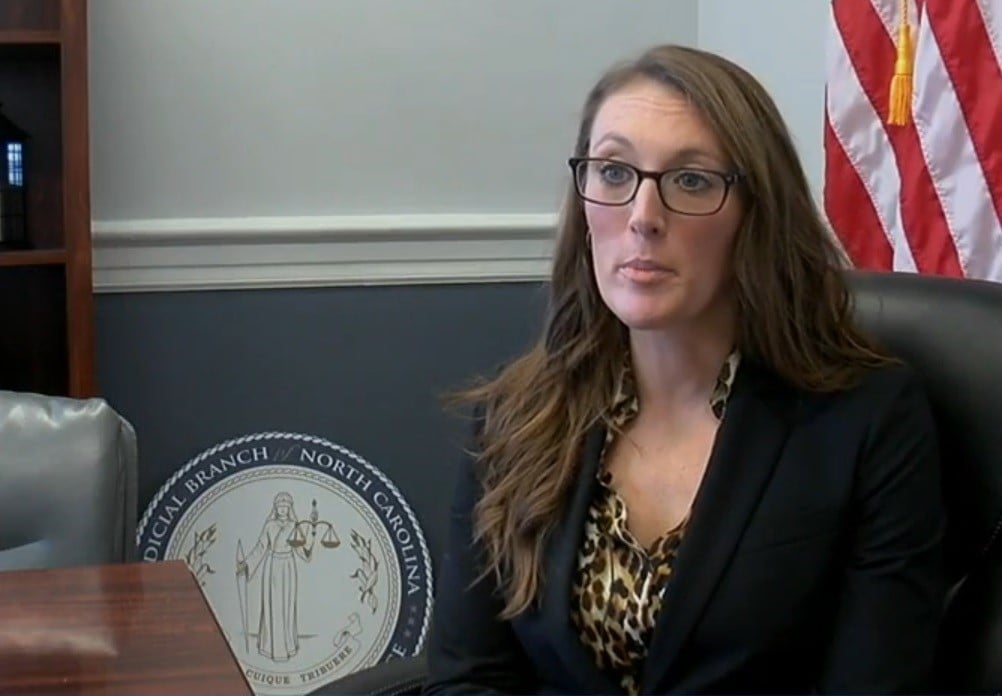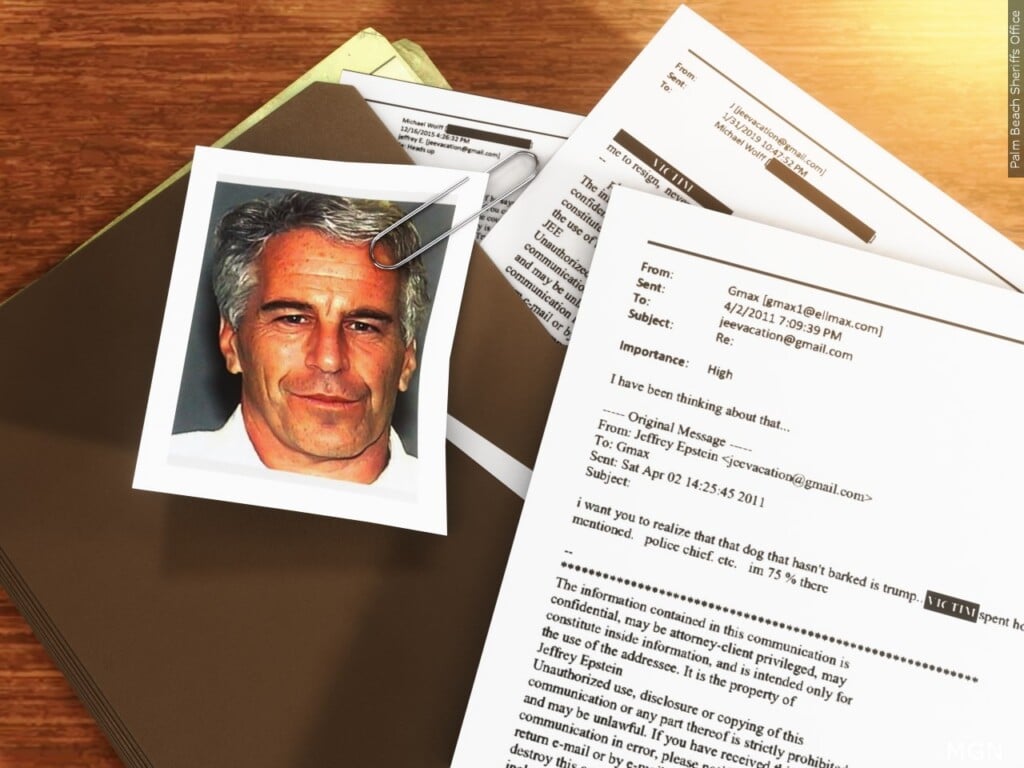Pope Francis calls for global treaty to regulate artificial intelligence

(CBS NEWS) — Pope Francis on Thursday called for an international treaty to ensure artificial intelligence is developed and used ethically, arguing that the risks of technology lacking human values of compassion, mercy, morality and forgiveness are too great.
Francis added his voice to increasing calls for binding, global regulation of AI in his annual message for the World Day of Peace, which the Catholic Church celebrates each Jan. 1. The Vatican released the text of the message on Thursday.
For Francis, the appeal is somewhat personal: Earlier this year, an AI-generated image of him wearing a luxury white puffer jacket went viral, showing just how quickly realistic deepfake imagery can spread online.
“In the quest for an absolute freedom, we risk falling into the spiral of a ‘technological dictatorship’,” he wrote, according to AFP.
The pope’s message was released just days after European Union negotiators secured provisional approval on the world’s first comprehensive AI rules that are expected to serve as a gold standard for governments considering their own regulation.
Artificial intelligence has captured world attention over the past year thanks to breathtaking advances by cutting-edge systems like OpenAI’s ChatGPT that have dazzled users with the ability to produce human-like text, photos and songs. But the technology has also raised fears about the risks the rapidly developing technology poses to jobs, privacy and copyright protection and even human life itself.
Francis acknowledged the promise AI offers and praised technological advances as a manifestation of the creativity of human intelligence, echoing the message the Vatican delivered at this year’s U.N. General Assembly where a host of world leaders raised the promise and perils of the technology.
But his new peace message went further and emphasized the grave, existential concerns that have been raised by ethicists and human rights advocates about the technology that promises to transform everyday life in ways that can disrupt everything from democratic elections to art.
“Artificial intelligence may well represent the highest-stakes gamble of our future,” said Cardinal Michael Czerny of the Vatican’s development office, who introduced the message at a press conference Thursday. “If it turns out badly, humanity is to blame.”
he document insisted that the technological development and deployment of AI must keep foremost concerns about guaranteeing fundamental human rights, promoting peace and guarding against disinformation, discrimination and distortion.
Francis’ greatest alarm was devoted to the use of AI in the armaments sector, which has been a frequent focus of the Jesuit pope who has called even traditional weapons makers “merchants of death.”
He noted that remote weapons systems had already led to a “distancing from the immense tragedy of war and a lessened perception of the devastation caused by those weapons systems and the burden of responsibility for their use.”
“The unique capacity for moral judgment and ethical decision-making is more than a complex collection of algorithms, and that capacity cannot be reduced to programming a machine,” he wrote.
He called for “adequate, meaningful and consistent” human oversight of Lethal Autonomous Weapons Systems (or LAWS), arguing that the world has no need for new technologies that merely “end up promoting the folly of war.”
On a more basic level, he warned about the profound repercussions on humanity of automated systems that rank citizens or categorize them. In addition to the threats to jobs around the world that can be done by robots, Francis noted that such technology could determine the reliability of an applicant for a mortgage, the right of a migrant to receive political asylum or the chance of reoffending by someone previously convicted of a crime.
“Algorithms must not be allowed to determine how we understand human rights, to set aside the essential human values of compassion, mercy and forgiveness, or to eliminate the possibility of an individual changing and leaving his or her past behind,” he wrote.
For Francis, the issue hits at some of his priorities as pope to denounce social injustices, advocate for migrants and minister to prisoners and those on the margins of society.
The pope’s message didn’t delve into details of a possible binding treaty other than to say it must be negotiated at a global level, to both promote best practices and prevent harmful ones. Technology companies alone cannot be trusted to regulate themselves, he said.
He repurposed arguments he has used before to denounce multinationals that have ravaged Earth’s national resources and impoverished the Indigenous peoples who live off them.
Freedom and peaceful coexistence are threatened “whenever human beings yield to the temptation to selfishness, self-interest, the desire for profit and the thirst for power,” he wrote.
Barbara Caputo, professor at the Turin Polytechnic university’s Artificial Intelligence Hub, noted that there was already convergence on some fundamental ethical issues and definitions in both the EU’s regulation and the executive order unveiled by U.S. President Joe Biden in October.
“This is no small thing,” she told the Vatican briefing. “This means that whoever wants to produce artificial intelligence, there is a common regulatory base.”




